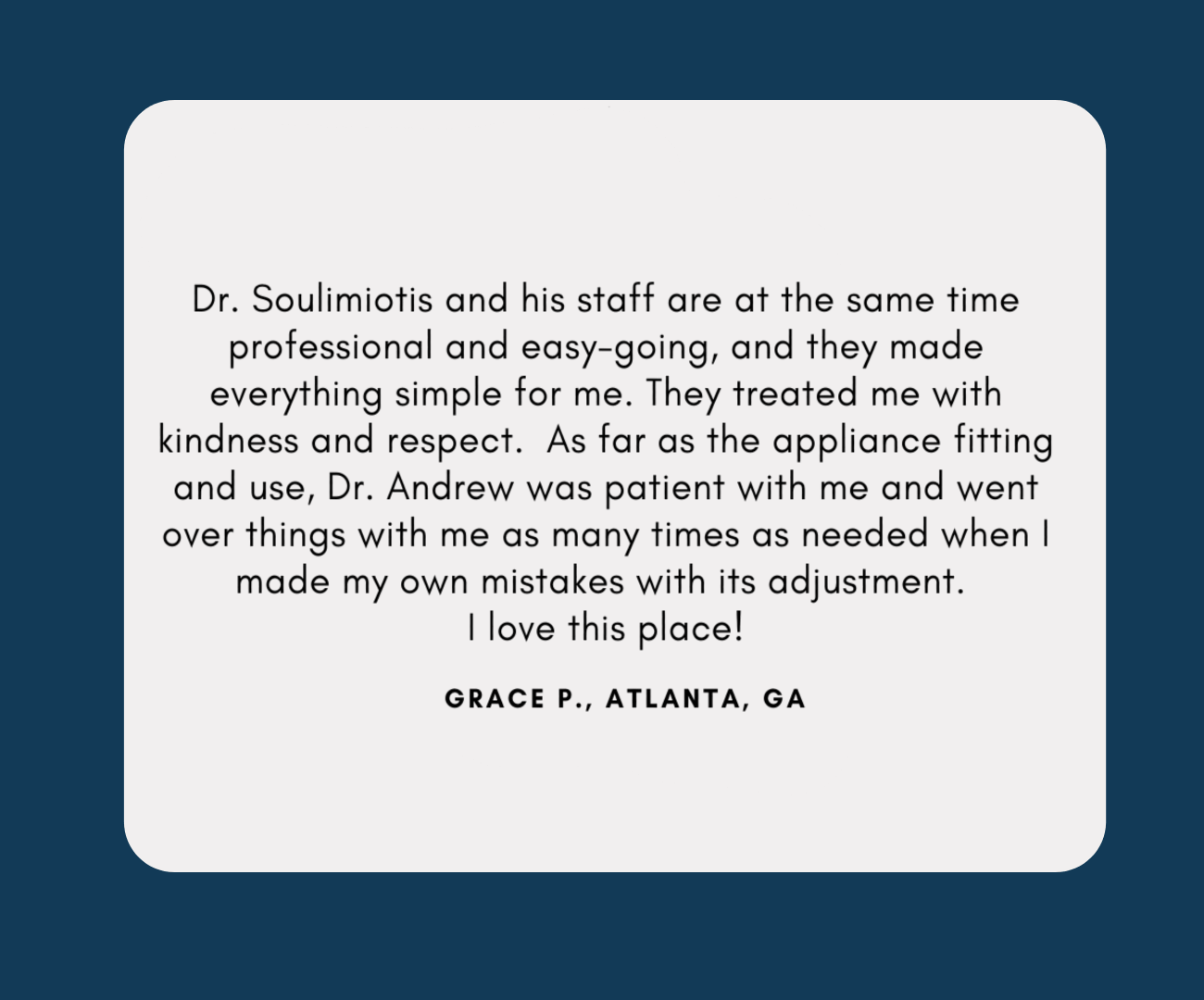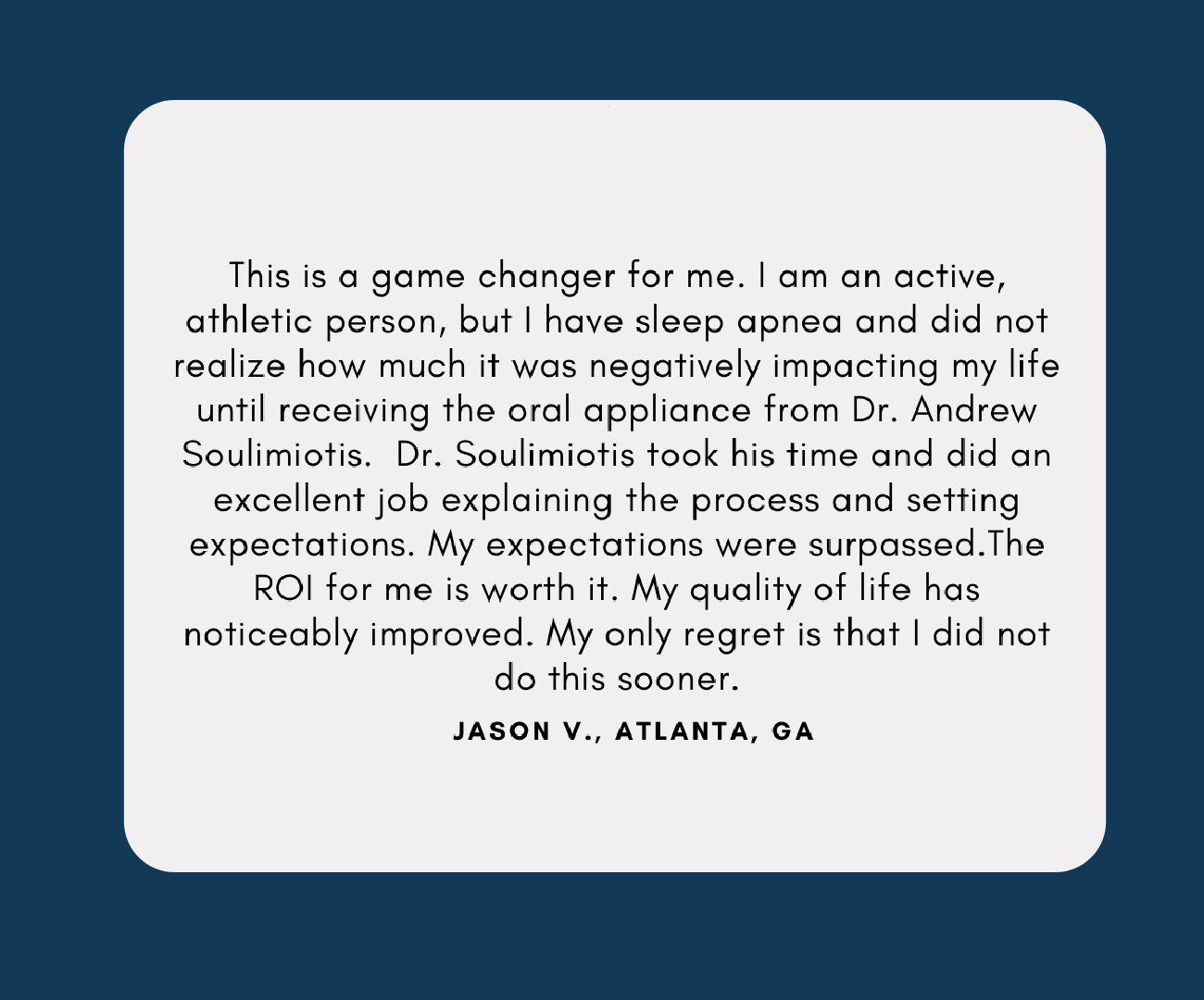PATIENT INFORMATION
About Sleep Apnea
Sleep apnea affects 1 out of 4 adults, and 80% of people are not even aware they suffer from it. When left untreated, it can cause excessive daytime fatigue, morning headaches, and memory loss. Additionally, sleep apnea increases the risk of numerous health issues, such as high blood pressure, congestive heart failure, atrial fibrillation, coronary artery disease, stroke and type 2 diabetes. Treating sleep apnea is incredibly important, and effortless using an oral appliance and is covered by most insurances.
What is Obstructive Sleep Apnea?
The National Sleep Foundation shares that obstructive sleep apnea (OSA) – an often-undiagnosed sleeping disorder – creates pauses in a person’s breathing that lead to snoring and restless nights. That resulting decrease in sleep quantity and quality that can effect your overall health and day-to-day activities.
Obstructive sleep apnea occurs during sleep when muscles relax, including those that control the tongue and throat. Snoring is often a symptom of OSA caused by changes in your upper airway while you sleep. Your soft tissue may vibrate (commonly known as snoring) or it may completely collapse causing you to stop breathing. The soft tissue at the back of throat can sag, narrowing and constricting the airway. Collapsing of the soft tissue is called an Obstructive Apnea and may last for 10 seconds or more and occur throughout the night.
Obstructive Sleep Apnea
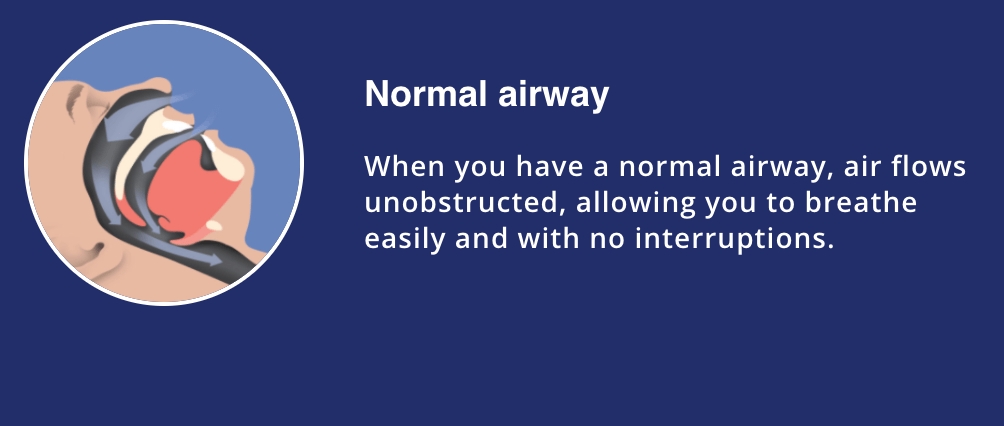
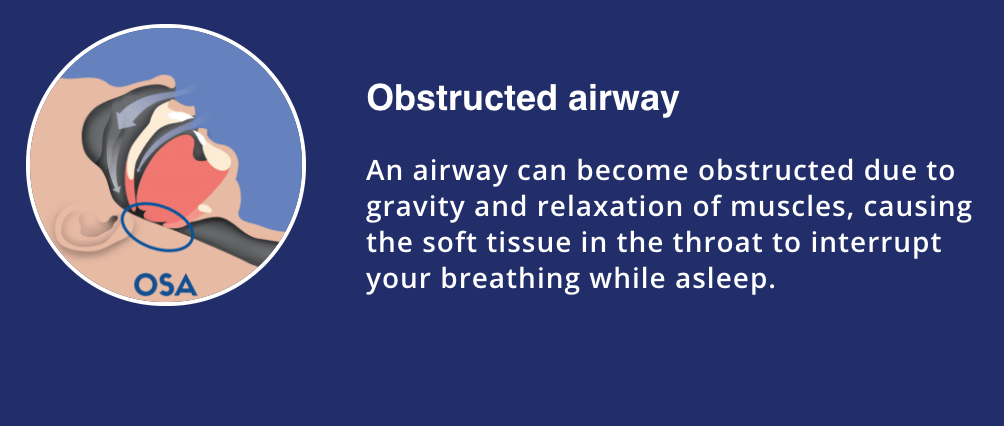
Oral Appliances are a CPAP Alternative
Long viewed as the gold-standard for treating obstructive sleep apnea, CPAP is effective, but many people experience challenges with consistently wearing their device. If you or a loved one has been diagnosed with mild-to-moderate obstructive sleep apnea, the American Academy of Sleep Medicine recommends using oral appliance therapy.
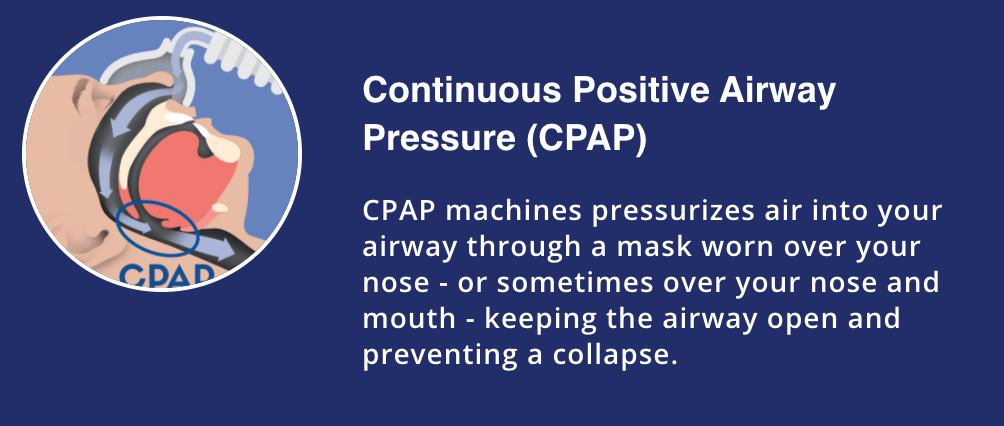
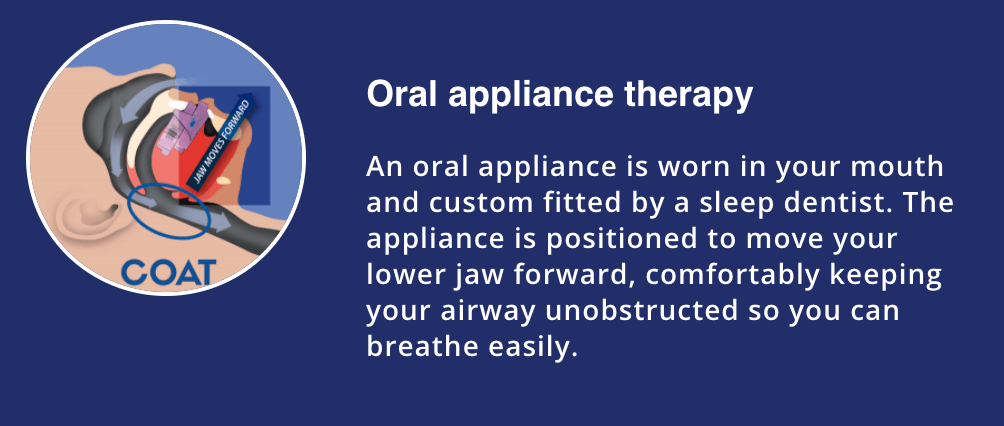

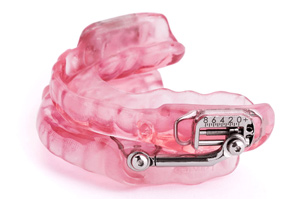
Oral Appliances
Oral appliances are prescribed by your sleep medicine physician, custom-made by a sleep medicine dentist, and when you insert them into your mouth, they work by moving the lower jaw slightly forward while you’re asleep. This forward movement keeps the airway open, preventing sleep apnea.
Consequences of Obstructive Sleep Apnea
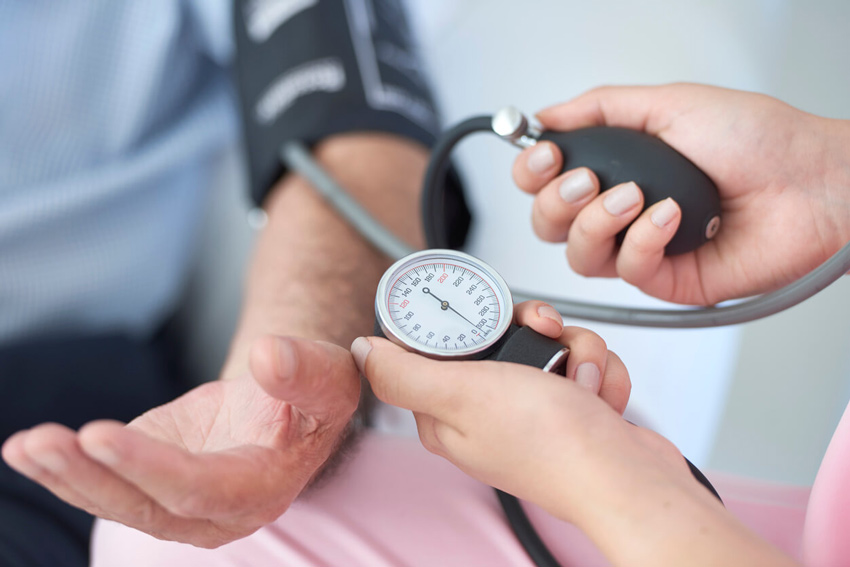
41% higher chance of developing high blood pressure
34% increase in risk of obesity
Increase risk of congestive heart failure by 140%
2.5x more likely to die
Are You at Risk?
Schedule an appointment with our office to find out if you are at risk for obstructive sleep apnea (OSA).
If you or a loved one have OSA or display a combination of the symptoms listed, treatment is essential.
- Snoring
- Hypertension
- Diabetes
- Daytime tiredness
- Observed Apneas (pause in breathing during sleep)
- Recent Heart Attack
What Our Patients Say
